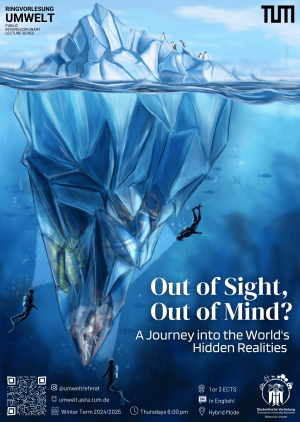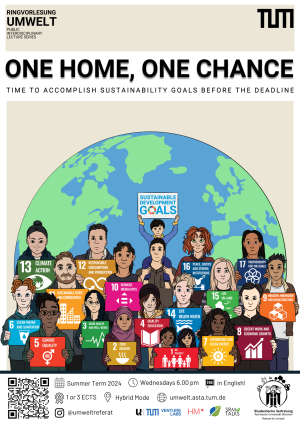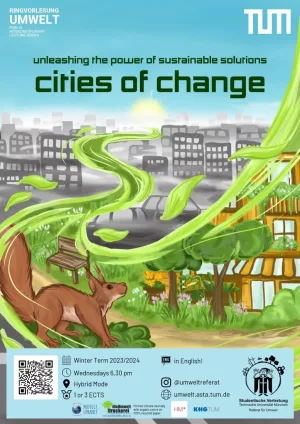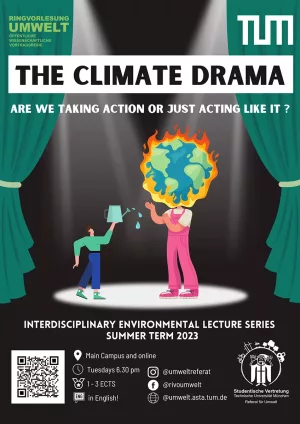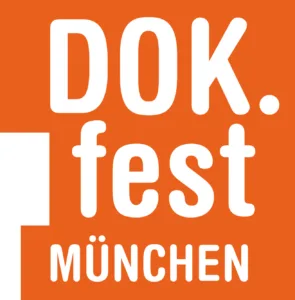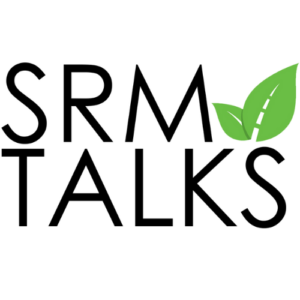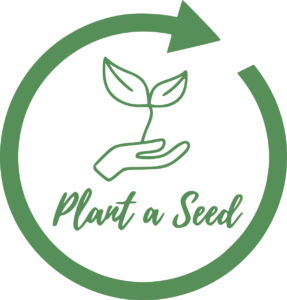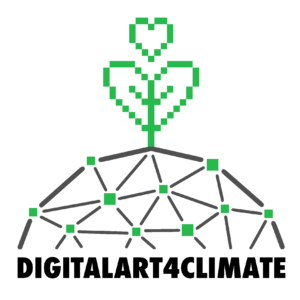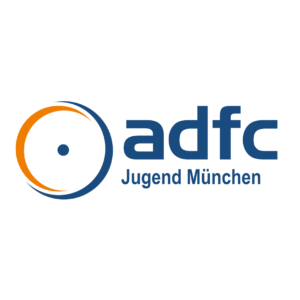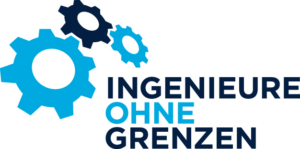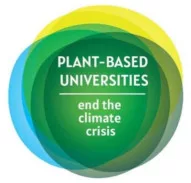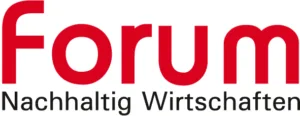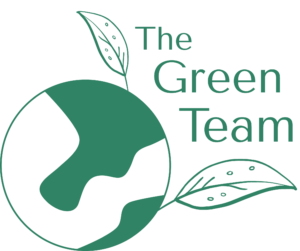Est.1985
Environmental Lecture Series
Summer Semester 2025
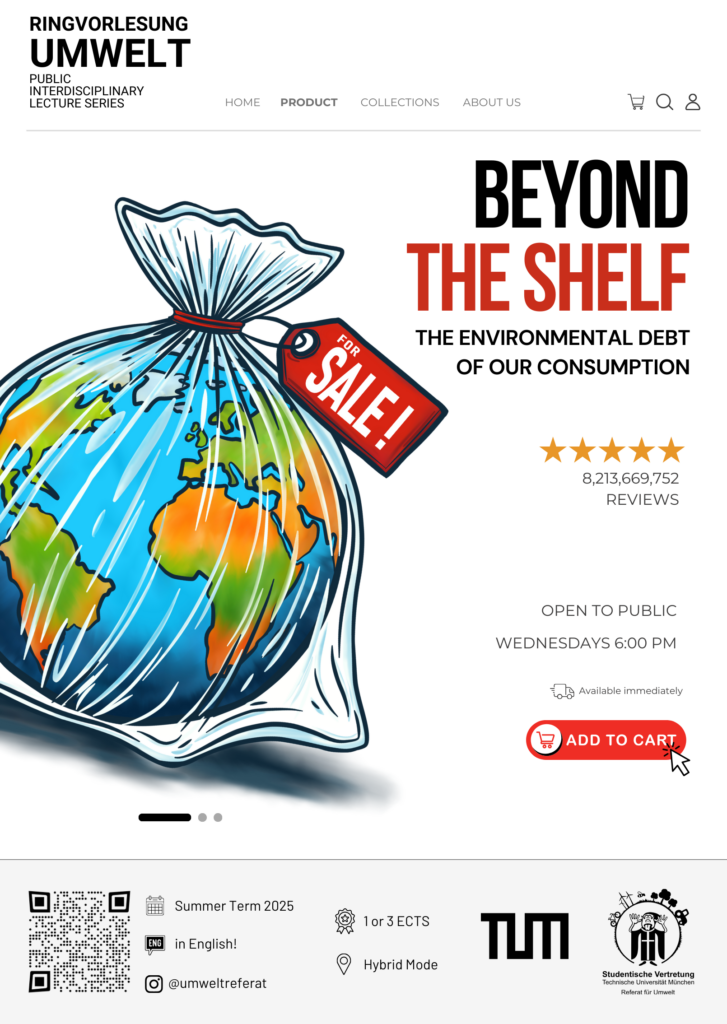
BEYOND THE SHELF: The environmental debt of our consumption
Every product we take off the shelf and buy comes with a hidden cost – one that is not reflected in the price tag. While we focus on convenience, affordability, and trends, what remains unseen is the environmental debt our consumption creates. From forests cleared for farmland, to rivers polluted by factories over mountains of waste piling up in landfills.
The lecture series Beyond the Shelf: The Environmental Debt of Our Consumption uncovers these hidden consequences. How are the resources for our everyday items extracted? Where do our discarded goods truly end up? How much energy and water are used to produce the things we consume without a second thought? And who – whether people or wildlife – pays the price for our demand for more? Some of these costs are invisible, like the carbon emissions from shipping goods across the world. Others, like electronic waste dumps, are deliberately ignored.
By understanding the debt we are creating, we can begin to make more responsible choices – for ourselves, for others, for the planet, and for the future. Now is the time to look beyond the shelf and ask ourselves: What price are we truly willing to pay?
For everybody else
lectures and events
Subscribe to Calendar
In our introductory session, you will:
- meet our team
- get an overview of our course and lecture structure
- try out our Engagement Lab
- and have the space to ask any questions you may have
The documentary will be screened at the TUM main campus in the usual lecture hall where most of our sessions take place: 2750 (Karl Max von Bauernfeind).
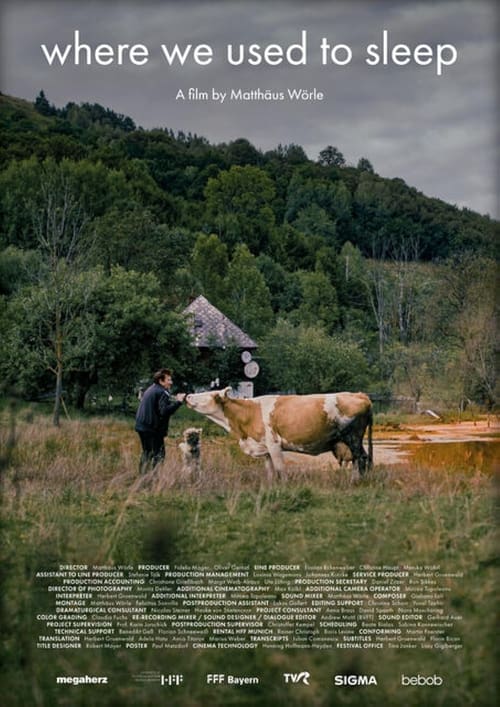
High in the Romanian mountains, a dam was hastily built to collect the effluent from a megalomaniac copper mine, flooding an entire village. Only the church spire still protrudes from the toxic slurry. Despite this, for over 40 years Valeria has held on to her piece of earth where she lives in a small farmhouse on the hillside just a few metres away from the lake. How much longer can this continue? A true cinema experience.
Nominated for the VIKTOR Main Competition DOK.international
Documentary screening in collaboration with DOK.fest

DOK.fest is the largest film festival in Germany dedicated solely to documentaries. Every year in May the DOK.fest welcomes well over 100 films, their makers and, if possible, some protagonists in Munich. We screen at over 20 locations throughout the city and beyond. Since 2020 there is of course a digital platform too, that offers these films to be enjoyed, discussed or binged at homes throughout Germany. Celebrating excellence in the documentary cinematic art is as important to us as are the discoveries, discussions and encounters for our guests and our audiences.
Panel Discussion
- Moderation
- Jan Sebening is a filmmaker, lecturer, father and a member of the DOK.fest Team – albeit not always in that order. With a background in documentary filmmaking he loves to mentor students’ projects and to organise the Student Award @DOK.fest.
- Panelists
- Matthäus Wörle, director: after studying journalism, Matthäus Wörle first worked for various prestigious newspapers, broadcasters and productions before focusing on documentary film directing. WHERE WE USED TO SLEEP is his graduation film at HFF Munich.
- Prof. Dr. Imke Hoppe is a Professor of Science Communication and Climate Education at the Faculty of Geosciences at LMU. She studied Applied Media Studies with a focus on media research and media production at the Ilmenau University of Technology, where she earned her doctorate in the field of “Empirical Media Research and Political Communication”. Previously, Imke Hoppe was deputy head of department at the Fraunhofer Institute for Digital Media Technology IDMT and responsible for the development and evaluation of digital educational media for children and adolescents. Imke Hoppe subsequently worked as a senior researcher at the DLR Institute “System Engineering for Future Mobility” on real laboratories for autonomous public transport in the context of the mobility transition. Currently, Imke Hoppe is leading the research project “Climate Change on German Television” for the MaLisa Foundation.
Discover the Story Behind Everyday Things
Have you ever wondered what it really takes to make a T-shirt or a smartphone? Where do the materials come from? Who makes them—and under what conditions? What happens after we throw them away?
In this hands-on, team-based workshop, you’ll dive into the full lifecycle of a common consumer product—from raw materials to disposal. Working in small groups, you’ll create a visual timeline on three large sheets, uncovering the hidden journeys, impacts, and systems behind the objects we use every day.
- Work in teams of 5–6 to map the lifecycle of an item
- Use creative thinking, collaboration, and research
- Explore the environmental and social impacts at every stage
- Present your visual timeline to the group
Room Change: This session will take place in the StuLounge, the cafe located in the Mensa building, Arcisstraße 17, 80333 München
 Shared Session with Hochschule München University of Applied Sciences
Shared Session with Hochschule München University of Applied Sciences
Location: Lecture Hall “Roter Würfel”, Room R 1.046 (Lothstr. 64) or online via Zoom with Meeting-ID: 947 3715 4657 and Password: 631726

How are climate protection and mountain sports interconnected, and why is this relationship so important? This lecture explores these questions from the perspective of the climate protection NGO Protect Our Winters Germany (POW Germany). We will examine key issues such as the environmental impact of winter sports, and the responsibility of various stakeholders – including policy makers, ski lift operators, brands, and outdoor athletes. Additionally, we will discuss the role of the mountain sports community in advocating for climate action and how a shared love for nature can be a powerful motivator for environmental responsibility.
Yasmin Sabrantke is the Communication and Social Media Lead at Protect Our Winters Germany, the national chapter of the international climate advocacy NGO. With a background in sports marketing, she is currently completing her studies in Sport, Business, and Law at the University of Bayreuth, focusing on sport ecology and sustainability.
 Shared Session with Hochschule München University of Applied Sciences
Shared Session with Hochschule München University of Applied Sciences

Overproduction and overconsumption of garments come with a price not included in the price tag. This talk gives an inside into the mechanisms of the textile supply chain, the damaging practices, and the consequences for humans and nature from an NGO perspective.
Shared Session with TUM Center for Culture and Arts
Ort: Friedrich von Thiersch Hörsaal (0503.02.300), Arcisstr. 21, 80333 München. Lageplan
Anlässlich ihres 40-jährigen Jubiläums widmet sich die Kunsthalle München mit der Ausstellung „Civilization“ der Frage, wie wir heute leben und veranschaulicht die Vielfalt und die Widersprüche unserer Zivilisation. In Kollaboration mit dem TUM Center for Culture and Arts findet hierzu eine Vortragsreihe an der TUM statt.
Der Vortrag des Historiker Dr. Roman Köster zum Thema „Müll. Eine schmutzige Geschichte der Menschheit“: Müll gehört heute zu den großen Umweltproblemen der Menschheit. Der Vortrag beschreibt, wie sich das Abfallthema durch die Geschichte hindurch verändert hat. Er gibt einen Überblick darüber, wie frühere Gesellschaften mit ihren Überresten umgegangen sind, warum die Abfallmengen so stark zugenommen haben und warum wir vom Müll nicht so einfach loskommen.
Registration is required! Click here to register.

This lecture explores the critical interrelationship between climate change and economic inequality through recent empirical and model-based assessments. Multiple integrated assessment models demonstrate that climate change exacerbates existing economic disparities both within and across countries. Key findings show that without additional climate action (3.6°C warming scenario), global inequality could increase significantly by 2100, with the Gini index rising by up to six percentage points in vulnerable regions like Sub-Saharan Africa. Climate impacts are regressive, disproportionately affecting lower-income populations, while wealthier households experience lower relative damages. Importantly, policies aligned with the Paris Agreement’s 1.5°C target could reduce long-term inequality increases by approximately two-thirds. Though such policies might slightly increase inequality in the short term, this effect can be counterbalanced through equal per-capita redistribution mechanisms, potentially lowering the Gini index by almost two points. The research provides robust evidence that well-designed climate policies can simultaneously address both climate stabilization and economic inclusion. These findings emphasize the importance of considering distributional aspects when formulating climate policy, as properly designed interventions can transform climate action into an opportunity for promoting greater economic equality rather than exacerbating existing disparities.
Johannes Emmerling is a Senior Scientist at EIEE and co-leads its Low carbon pathways unit. He was a Senior Researcher at Fondazione Eni Enrico Mattei (FEEM) between 2012 and 2018. Johannes holds a Ph.D. from the Toulouse School of Economics (TSE), a M.A. in Economics from the Free University Berlin and a B.Sc. in Economics from the University of Heidelberg. He was a postgraduate fellow in Development Cooperation at the German Development Institute, Bonn. He has been working amongst others at the Social Science Research Center (WZB) Berlin, the Gesellschaft für Internationale Zusammenarbeit (GIZ), as Lecturer at Université Toulouse 1 Capitole, and as Consultant for the Organization of American States (OAS), the European Bank for Reconstruction and Development (EBRD), the German Institute of Metrology (PTB), the Asian Development Bank (ADB), and the World Bank. He is co-leading the development of the integrated assessment model WITCH. His main areas of research include Climate Change and Energy economics, Risk and Uncertainty, Welfare Economics and Development. He has co-authored over fifty articles in peer-reviewed journals and is an Associate Editor of the Public Finance Review. He is a passionate cyclist and plays keyboards in various formations.
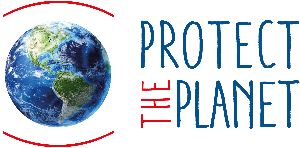 Shared Session with Protect the Planet
Shared Session with Protect the Planet

Join innovation and circular economy expert Nadin Zimmermann for an eye-opening talk on how circular economy and cradle-to-cradle principles are transforming the way we consume, produce, and design for the future. Whether you’re a student eager to drive change or a professional looking for innovative solutions, this is your chance to explore how sustainable thinking can disrupt industries—and your career.
Nadin-Shirin Zimmermann is a visionary leader with a strong track record in developing digital and sustainable business models. As an innovation expert, she has helped companies create and scale diverse business ideas, identify new market opportunities and reach new customer segments. With deep insights into market trends and a broad network across startups and corporates, she provides strategic advice and hands-on support to foster circular economy innovation. Her strong commitment to the Innovation Ecosystem extends to her roles as advisory board member, business angel, podcaster, guest lecturer, TUMmentor and startup jury member, where she bridges entrepreneurial experience with the latest economic insights to inspire the innovation landscape. Currently, she is expanding her expertise through an executive program in Sustainable Innovation at Harvard University, deepening her knowledge in corporate responsibility, circular economy, and sustainable business models to help shape a more future-ready and ecologically responsible corporate world.
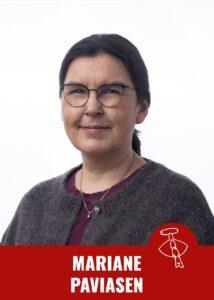
This lecture explores the profound impact of global technology demands on Indigenous communities, focusing on the proposed rare earth and uranium mining project near Narsaq, Greenland. It examines how extractive projects — often promoted as essential for the green transition — can threaten traditional ways of life and fragile ecosystems. Particular attention will be given to how the local community, especially Indigenous residents, has responded to these challenges.
Mariane Paviasen Jensen is a Greenlandic politician and environmental activist. She founded the “Urani? Naamik” (“Uranium? No”) movement in 2013 to oppose uranium mining near her hometown of Narsaq. The proposed Kuannersuit (Kvanefjeld) mining project, led by the Australian company Greenland Minerals Ltd, sparked widespread local resistance due to its environmental and cultural risks. Elected to the Greenlandic Parliament in 2021 as a member of the Inuit Ataqatigiit party, Paviasen has been a leading voice for Indigenous rights and environmental protection. Her activism contributed significantly to Greenland’s 2021 decision to ban uranium mining, effectively blocking the Kuannersuit project.

As a means to reduce the pollution and resource use following from consumption, attempts are made to motivate consumers to switch to less environmentally harmful and resource consuming products and increasingly also services. One of the increasingly popular tools is to label products and services in such a way that consumers can distinguish the least harmful from others and, hence, are able to choose them. In this presentation, I will present and discuss research on the effectiveness of sustainability labelling as a means to influence consumer decision-making and behavior and environmental outcomes.
John Thøgersen is professor of economic psychology at Aarhus University, Denmark, Department of Management, where he coordinates the Marketing and Sustainability Research Group. He is also connected to MAPP – Centre for research on customer relations in the food sector. His research focuses on consumer willingness to reduce their climate footprint, responses to eco- and climate labelling, the establishment of sustainable lifestyles, and drivers and impediments for energy renovation and for buying organic food. He has published extensively on sustainable consumption in top journals, edited volumes, and recently a monograph on Edward Elgar. He is a Fellow of IAAP, editor of Journal of Consumer Policy, published by Springer-Nature, and member of several editorial boards, including Journal of Environmental Psychology.

We are currently facing a planetary emergency situation due to the progressive environmental pollution connected to our unrestrained energy and materials consumption. Here, plastic materials from fossil resources play a major role. Many functional and structural materials applications are currently dominated by “conventional” polymeric materials. Approximately 7,500 million tons of plastic waste have been produced since the beginning of the polymer era. More than 50% of this waste is buried in landfills, less than 10% is incinerated, the rest is currently in-use. Most of the existing plastic materials are made of fossil resources. The majority is non-biodegradable and will therefore not disappear from the landfill. Even more, they will be released as microplastic into the environment from the landfill and accumulate in the hydro- and pedosphere causing severe damage. Two major issues connected to fossil-based resources: i) they cause severe environmental issues and ii) they are subject to eventual depletion. However, natural resources were always available before and they will be existing after the fossil era. Unfortunately, the use of natural materials and their processing into sophisticated has often fallen into oblivion with the uprising fossil era. There is therefore a strong need to recover this lost knowledge, how natural resources can be used and processed for the fabrication of advanced materials in a modern context. The lecture includes the very first bioplastic vulcan fiber (Cottonid), which is translated into a recent context, and historic and archaeoinspired neo-adhesives. Advanced material applications such as light waveguide made form cellulose derived from trees will be introduced. We desperately need fully bio-based materials with innovative design approaches, that will gain a high potential to substitute fossil-based plastics for commodity and advanced applications.
Cordt Zollfrank studied chemistry at the Technische Universität München (TUM, Germany, diploma thesis supervisor: Ivar Ugi) and earned his Ph.D. in forest sciences with a cellulose related topic (supervisor Gerd Wegener). He was as a postdoctoral research fellow at the University of Erlangen-Nuremberg (Germany) at the Institute of Glass and Ceramics and established the Bioengineered Ceramics Group. In 2009 he finished his postdoctoral teaching qualification (habilitation) in material sciences (supervisor Peter Greil). He became an associate professor for Biogenic Polymers in 2011 at the TUM Campus Straubing for Biotechnology and Sustainability and was promoted to full professor in 2020. A key area of his work is the formation of bioinspired and biopolymeric structures and their conversion into composite materials for engineering and biomedical applications. C. Zollfrank has been awarded with a Reinhart-Koselleck-Project from DFG. He is a fellow of the International Academy of Wood Science (IAWS).
 Shared Session with RCE BenE München
Shared Session with RCE BenE München
We are excited to invite you to a beaver excursion around the Flaucher in Sendling, guided by the expert Gerhard Schwab. The event takes place within the framework of the 27th Münchner Hochschultage. The Münchner Hochschultage are organized by students across different universities and faculties, coordinated by BenE München e.V., and supported by the Rachel Carson Center for Environment and Society, the Verein für Nachhaltigkeit, and the Forum Ökologisch-Soziale Marktwirtschaft e.V.
During the excursion, we will approach this semester’s topic through the lens of the beaver’s natural habitat and discuss how pollution and water contamination—driven by consumption—affect ecosystems and species like the beaver.
Important Details:
- Start: 3:00 PM
- Duration: about 3.5h
- Meeting Point: Roter-Turm-Platz (close to Metro Station Brudermühlstraße) [Google Maps]
- Limited number of participants
- Registration: via mail to info@bene-muenchen.de

Gerhard Schwab, born in 1961, was born in Bavarian Swabia. After graduating from high school in 1980 and two years in the German army, he studied biology from 1982 to 1986, with a minor in geography at the University of Regensburg. This was followed in 1986-1988 by studies in wildlife management in Ft. Collins, Colorado with a Master of Science degree. Immediately afterwards, he worked on the “Beaver in Bavaria” project from 1988 to 1992. After various projects with other species, he started beaver management in Bavaria in 1996, for which he is still active today as beaver manager for southern Bavaria. As part of this work, he has also supplied 1,000 beavers from Bavaria for reintroduction projects, mainly to Eastern Europe, and helped to train around the same number of local beaver advisors.
RCE BenE Munich: “Education is the key to a sustainable world”. RCE BenE München e.V. stands for Education for Sustainable Development and is the regional competence center for ESD. We implement educational projects with schools, universities and in adult education. In our working groups, we give citizens the opportunity to actively participate in sustainable and regenerative development and network people interested in ESD. The RCE BenE Munich works primarily locally/regionally, but is very well networked nationally and internationally! Focus of content:
– Education for sustainable development (ESD)
– Agenda 2030 / SDGs
– Sustainability
– Shaping regenerative cultures
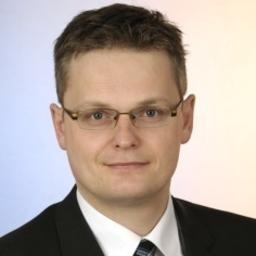
Plastic packaging has become an integral part of everyday life. Buying long-life food, transporting everyday products, or protecting them is difficult without such packaging. The consequence of our actions is that more and more plastic packaging is needed and, therefore, produced yearly. Plastic packaging is a success story. It is light, cheap, available in various shapes and qualities, …. and has a long shelf life. But that is precisely one big problem: Due to the long shelf life, we have a significant problem if the plastic packaging is uncontrolled in the environment. In addition to being a massive waste of resources (most plastic is petroleum-based), plastic packaging is usually only used once.
Against this background, the lecture will address the following questions: Who is responsible for the flood of plastic packaging? Is plastic packaging really that bad? How can consumers reduce plastic packaging?
In addition to practical examples, various scientific studies on avoiding plastic packaging will also be shown.
Head of Department at the Chair of Marketing and Management of Renewable Resources at the Weihenstephan-Triesdorf University of Applied Sciences on the Straubing Campus for Biotechnology and Sustainability. Thomas Decker has been analyzing the prerequisites and conditions for sustainable consumption for 20 years. To do so, he primarily conducts surveys of consumers and experts. His focus is on applications in agriculture, using renewable raw materials and renewable energies. In addition to his research, he has been lecturing on consumer behavior and markets for renewable raw materials for many years. He also supervises students’ doctoral theses and dissertations.
In addition to his scientific work, Mr. Decker runs a part-time agricultural business. Among other things, he produces grain maize or wheat and experiences the effects of climate change due to changes in his forest.
“Beyond the flash” – discover what happens to the consumed water in Munich!
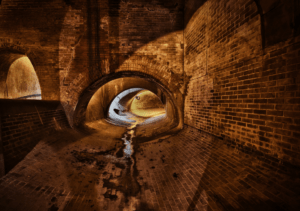
This excursion offers an exclusive opportunity to learn about the history and daily operations of the city’s drainage infrastructure, guided by experienced sewer workers. Together, we will discover the evolution of wastewater management in Munich, the challenges of modern drainage, and the vital role of sewer workers in keeping the city safe and clean.
Important Details:
- Meeting Point: we’ll gather at the corner of Akademie-/Ecke Türkenstraße (near the U3/U6 Universität stop).
- We will visit three different locations:
- The Pettenkofer-Kanal on Akademiestraße
- The rainwater outlet canal on Ungererstrasse at the Nordfriedhof parking lot (U6, Alte Heide)
- The rain overflow pool in Schenkendorfstraße (a few minutes from Ungererstrasse).
- The tour lasts approximately 2 hours and is completely free of charge
- Please wear sturdy, closed-toe shoes and clothing that you don’t mind getting a little wet. For safety and hygiene reasons, only those with sturdy footwear will be allowed to enter.
- Due to health risks, the tour is not recommended for those with a weakened immune system, anyone currently unwell, or pregnant participants.
- Unfortunately, the entrances are not wheelchair accessible.
This excursion is only available for a limited number of participants. If you are not a TUM student and would like to participate, please send an email to rivo@fs.tum.de. We will put you on the waiting list.
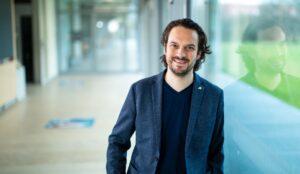

The current global food system has detrimental outcomes for global health, environmental conditions and social inclusion. A coherent vision of a desirable food system can guide a sustainable food system transformation and help to structure political processes and private decisions by quantifying potential benefits, facilitating debates about co-benefits and trade-offs, and identifying key measures for desirable change. Such a transformation requires integrating measures targeting human diets, livelihoods, biosphere integrity, and agricultural management. Here, we apply a global food and land system modeling framework to quantify the impacts of 23 food system measures by 2050. Our multi-criteria assessment shows that a food system transformation can improve outcomes for health, the environment, social inclusion, and the economy. All individual measures come with trade-offs, particularly those targeting agricultural management, while few trade-offs and multiple co-benefits are linked to dietary change measures. By combining measures in packages, tradeoffs can be reduced and co-benefits enhanced. We show that a sustainable food system also requires a transformation of the overall economy to stop global warming, reduce absolute poverty, and create alternative employment options. Within the context of a cross-sectoral sustainable development pathway, the food system transformation improves 14 of our 15 outcome indicators.
Dr. Benjamin Bodirsky:
- Employed since 2007 at Potsdam Institute for Climate Impact Research in the Land System Transformation Lab
- Senior Scientist, Economist, Theme lead on “Food Systems”
- Seconded to different international research institutes like CIAT (Columbia), CSIRO (Australia), World Vegetable Center (Taiwan)

Animal experiments are deeply entrenched in basic research, safety testing, and drug development, despite the dramatic advancements in human-based technologies over the past 15 years. While animal research originated in a time with limited alternatives, the 21st century offers innovative human-based methods that provide improved predictability for human diseases, leading to more effective research into causes and therapies. However, the transition to animal-free research is hindered by systemic and regulatory factors.
In contrast to basic research, the regulatory sector has seen significant progress in implementing animal-free methods (NAMs) and reducing animal testing, driven by the pharmaceutical industry and other companies due to the limited predictability, high costs, and poor reproducibility of animal experiments. The failure rate in drug development based on animal testing has remained above 90% for 60 years.
The European Citizens’ Initiative for a cruelty-free Europe has spurred action, with the European Commission announcing steps to accelerate the phasing out of animal testing in both basic research and safety testing. A major project within the European Research Area aims to strengthen animal-free research through financial support and infrastructure. The Commission is also working on a roadmap for animal-free safety testing of chemicals, including pharmaceuticals and cosmetics, based on the NGRA (Next Generation Risk Assessment) approach. Globally, the development of such roadmaps is increasing, exemplified by the US FDA Modernization Act 3.0 and reduction strategies in Germany and Switzerland. The iMPSS (International MPS Society) unites experts to promote and implement human-based research and testing. Successful roadmaps require clear criteria and goals to achieve their objectives.
Dr. Tamara Zietek is an expert in animal-free research, holding a PhD in biochemistry from the University of Cologne and a diploma in biochemistry from the Ruhr University Bochum. Currently, she is the CEO and Head of the Science Department at Doctors Against Animal Experiments (DAAE. In this role, she leads scientific projects promoting animal-free research methods and represents the organization internationally. Dr. Zietek is also the Chair of the European Coalition to End Animal Experiments (ECEAE). She played a key role in the successful European Citizens Initiative for a Europe without Animal Testing and contributes to the development of roadmaps for animal-free chemical safety testing.
Before joining DAAE, Dr. Zietek led a research group at the Technical University of Munich, focusing on developing non-animal models, particularly intestinal organoids. She introduced 3D intestinal organoid models as alternatives to animal experiments. Her research interests include the use of 3D intestinal organoids for studying nutrient uptake and drug effects, and the promotion of New Approach Methodologies (NAMs). She is a member of several scientific committees and international consortia and has published in the field, including on live-cell calcium imaging in 3D intestinal organoids.

Tropical forests and forestlands are being claimed – and deforested – for a myriad of interconnected global, national and local interests. Flows of material, finance and ideas are intertwined with the establishment and persistence of plantations for commodities such as biomass, soy, beef, oilpalm, and others) since colonial times. Whose interests are served through policy and practice is reflected in network structures of actors, institutions, and flows of discourses, and the underlying power relations. Who benefits, and how to break and transform long-standing infra-structures of inequality towards more just and equitable futures?
Dr. Maria Brockhaus is Professor of International Forest Policy at the University of Helsinki, Finland. In her research, she focusses on the political economy of deforestation in the Global South and underlying politics and power relations. Her current projects focus on forests & climate change and equity outcomes in rapidly changing forest frontiers.
Location

On-site: TUM Main Campus
Room: 2750 (Karl Max von Bauernfeind)
Floor: 2
Building: Main building (Z7)
Location: Arcisstraße 21, 80333 München
Online: Zoom Link
Webinar ID: 688 3887 0019
Password: forSale
Contact us!
rivo@fs.tum.de
getting to the lecture hall
History of the Environmental Lecture Series
The lecture series on the environment is an interdisciplinary, public lecture series organised by the Environmental Department of the Student Union of the TU Munich. It is organised by TU Munich students on a voluntary basis.
Speakers have been giving lectures on the topic of sustainability since 1985. This includes, for example, technical environmental protection, health, consumer and climate protection. In this way, it offers both students and teachers at the TU Munich, as well as the non-university public, the opportunity to learn about and discuss these topics and research results at a scientific level.
The speakers from research, associations, authorities and companies will be happy to answer questions from the audience after the lecture; the slides of the lectures, and in some cases the video recordings themselves, will be made available – if available – on our website. In the 40 years of its existence, more than 480 lectures have been organised so far.
In the meantime, the lecture series on the environment has become a regular part of the TU’s lecture programme and is supported, among others, by the management of the TU Munich, the Munich Center for Technology in Society and the KHG of the TU Munich. The lecture series on the environment is a partner of the BNB, the “Alliance for Sustainability in Bavaria”. In addition, some lectures are held in cooperation with the Environmental Academy and the Munich Forum for Sustainability.
Check out our trailer! 😉
“As Vice President of TUM, I am proud to endorse the Environmental Lecture Series, RiVo. For nearly 40 years, TUM students have been at the forefront of this interdisciplinary initiative, providing a platform for knowledge exchange and facilitating critical discussions on the challenges and solutions surrounding sustainability. It is heartening to see speakers from diverse backgrounds sharing their expertise and enriching our understanding. RiVo educates, raises awareness and inspires action for a greener future. My heartfelt appreciation goes to the Student Council’s Environmental Department for their tireless dedication in organizing this invaluable series.“
Prof. Dr. Werner Lang
TUM Vice President for Sustainable Transformation
